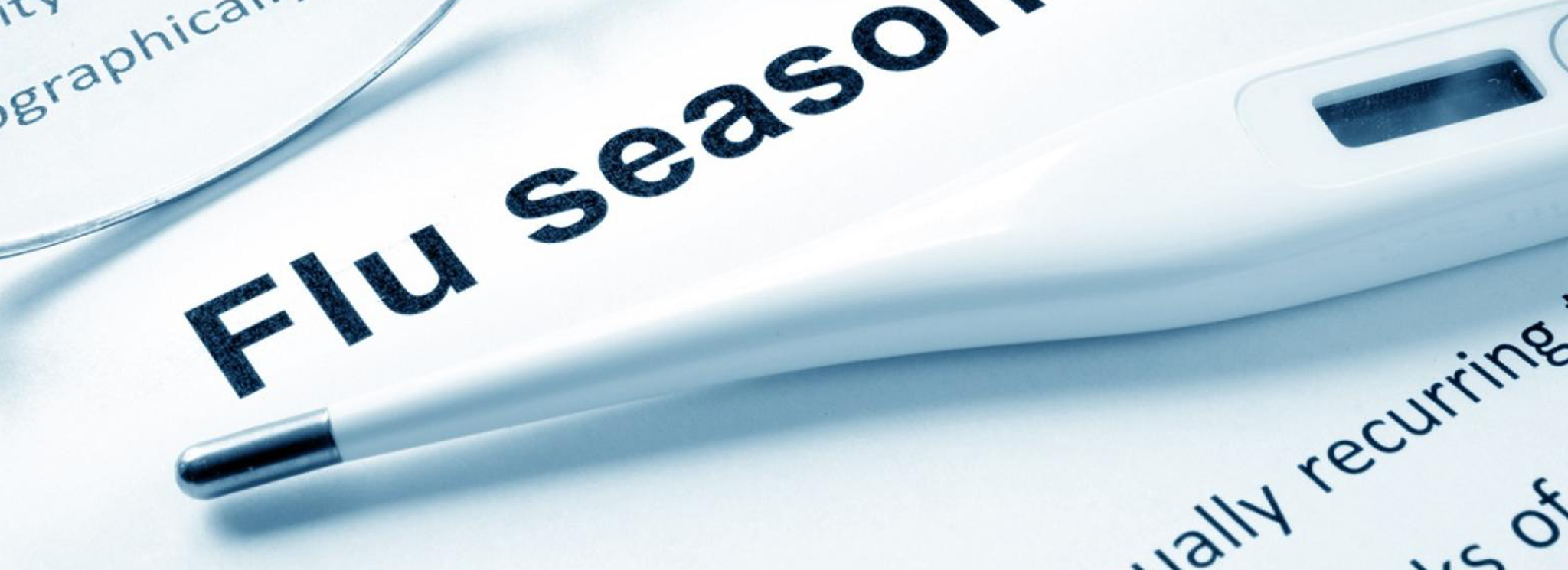
The flu season is back again. People typically experience stuffy noses, fevers, body aches, and much more during the flu season. In this blog, we are going to dive into many topics about the flu so you can be as informed as possible this season. Knowing how to navigate the flu season is your best offense.
What is The Typical Flu Season Timeframe?
The typical flu season timeframe is usually from fall to early spring, with the peak occurring between December and February in the northern hemisphere.
How Does the Flu Spread?
It’s believed that the flu can spread from coughs, sneezes, or simple conversations where droplets of water can be sprayed from the infected person’s mouth or nose to yours.
It’s also possible to contact the flu virus by touching a surface that has the flu virus on it and then touching your eyes, mouth, or nose.
Symptoms of the Flu:
Common symptoms of the flu include:
- Fever
- Cough
- Sore Throat
- Runny or Stuffy Nose
- Body Aches
- Headache
- Chills
- Fatigue
- Vomiting and/or Diarrhea
Can I Get tested For The Flu?
Yes, there is testing for the flu. You can receive a rapid test by swabbing the inside of your nose or the back of your throat. The specimen is then mixed in a solution and left to sit for 15-20 minutes. The test uses technical information called RIDTs, which are antigen detection assays.
These rapid tests can be done at home or at a local clinic or providers office.
Some tests out to a lab for processing for various reasons. Sometimes the results are not clear enough, a suspected false negative, or other factors.
If your test needs to be sent a test to a lab for processing, it can take up to 72 hours for the results to return.
This test is a reverse transcription polymerase chain reaction (RT-PCR), viral culture, and immunofluorescence assays.
Treatment for the Flu:
The treatment for the flu typically involves getting plenty of rest, staying hydrated, and taking over-the-counter medications to relieve symptoms such as fever, cough, and congestion.
In some cases, antiviral medications may be prescribed by a healthcare provider to help reduce the severity and duration of the illness.
Consulting with a healthcare professional for personalized advice and treatment options is important.
How Does the Flu Vaccine Help Me and Why is it Important?
The flu vaccine is important because it helps protect you from getting the flu and reduces the severity of the illness if you do get sick. It can also help prevent the spread of the flu to others, especially those who are more vulnerable to serious complications.
- The flu vaccine prevents illness, medical visits, hospitalizations, and deaths.
- Flu vaccines are an important preventative tool for those with compromised immune systems and chronic conditions.
- Vaccines help protect pregnant women from the flu and hospitalizations, infections, and more.
- The flu vaccines can be life-saving in children.
- You can still get sick, even if you got your flu shot. However, studies show it will reduce the severity of the illness.
- The flu virus is constantly changing, so every year the vaccine is updated to protect against the virus researchers suggest will be common this season.
- Your best protection from the flu declines over time. Yearly protection is your best offense.
How To Prevent Against the Flu?
To prevent the flu, you can take several precautions:
- Get vaccinated annually.
- Practice good hand hygiene by washing your hands frequently with soap and water.
- Avoid close contact with sick individuals.
- Cover your mouth and nose when coughing or sneezing.
- Clean and disinfect frequently touched surfaces at home, work, or school.
These preventive measures can help reduce your risk of getting the flu.
What Flu Strains Are Prominent for 2024 / 2025?
All current U.S. flu vaccines protect against an influenza A(H1N1) virus, an influenza A(H3N2) virus, and an influenza B/Victoria lineage virus.
Viruses most likely to spread are Type A and B viruses.
Types of Flu Vaccines:
Typically there is Quadravailent, which protects against 4 strains. And the Trivailent, which protects against 3 strains of the virus.
According to the CDC:
Egg-Based Vaccines
- A/Victoria/4897/2022 (H1N1)pdm09-like virus
- A/Thailand/8/2022 (H3N2)-like virus; and (Updated)
- B/Austria/1359417/2021 (B/Victoria lineage)-like virus
Cell- or Recombinant-Based Vaccines
- A/Wisconsin/67/2022 (H1N1)pdm09-like virus
- A/Massachusetts/18/2022 (H3N2)-like virus
- B/Austria/1359417/2021 (B/Victoria lineage)-like virus
Flu vaccines can have preservatives, and come in a non-preservative formula. Some people have reactions to preservatives, so it is important to ask which vaccine you are receiving. Also, filling out paperwork and forms prior to any shot is imperative to your vaccine appointment.

